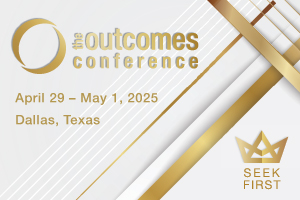
Why Strategic Alliances Matter by Douglas Napier
By Douglas Napier
Though one may be overpowered, two can defend themselves. ?A cord of three strands is not quickly broken. ~ Ecclesiastes. 4:12.
The Golden Gate Bridge in San Francisco spans nearly two miles across the strait separating San Francisco and Marin counties. This engineering marvel is suspended by two cables, each measuring 36 inches in diameter. Because the cables are wrapped in a steel jacket, they appear to be one solid strand. In reality, each cable is made up of 61 smaller cables, which in turn are made up of 452 individual strands. In total, each cable is comprised of 27,572 individual strands.
Why so many?
Solomon had the answer: a cord of three (or 27,572) strands is not easily broken. A single, thick cable would be rigid and inflexible. Any breaks or weaknesses would threaten the whole structure. With multiple strands, though, even if one should break, the others will hold up the bridge.
There’s a model there for modern ministries, carrying ever-larger loads and facing ever-tougher opposition. In today’s culture, forming strategic alliances is a necessity.
Let’s face it, the cultural and economic times are tough. Christian ministries and nonprofits that once could do their work without much interference or help from others now find themselves increasingly constrained by government mandates, legal challenges and violent shifts in cultural attitudes and behaviors. Available funding seems scarce, even as the need for ministry services and programs continues to grow. One solution to these fast-growing challenges is the formation of strategic alliances — cooperative efforts to multiply capacity, eliminate duplication, increase efficiency and provide much-needed encouragement.
Just as the body of Christ has many parts that must work together, well-planned strategic alliances are force- multipliers that can achieve transformative results.
Prayerfully consider whether such an alliance might benefit your organization — then give careful thought to the questions posed above. A solid alliance might just be the bridge from today’s challenges to your ministry’s successful future.
####
Douglas Napier is senior counsel, executive vice president and ?chief alliance officer for Alliance Defending Freedom. This post is an excerpt from an article featured in the 2015 Spring edition of Outcomes Magazine.
 For more lessons in leadership – come join us for The Outcomes Conference: CLA Dallas 2015. Here are just a few of the leadership sessions you find this year and the faculty that will be leading them:
For more lessons in leadership – come join us for The Outcomes Conference: CLA Dallas 2015. Here are just a few of the leadership sessions you find this year and the faculty that will be leading them:
Transformative Results through Strategic Alliances
- Douglas Napier, JD, MABS, Exec. Vice President, Chief Alliance Officer, Sr. Counsel Alliance Defending Freedom
Best Practices for Developing Women Leaders
- Janel Curry, Ph.D., Provost Gordon College
- Helen Sterk, Professor and Department Head, Communications Western Kentucky University
- Amy Reynolds, Assistant Professor of Sociology Wheaton College
- Michael E. Batts, CPA, Managing Partner Batts Morrison Wales & Lee
- Dan Busby, President ECFA
Building Great Teams through 7 Habits
- Mark Siegrist, Director of Education Denver Rescue Mission
- Nancy Reece, Sr. Consultant, Human Capital Group, Inc. and Founder Pastors Leadership Academy
Reaching Your Leadership Destiny
- Bruce McNicol, Ph.D., President Truefaced
- Brad Smith, Ph.D., President Bakke Graduate University
Authentic Life Stories Reveal Authentic Leadership
- Peggy Banks, D.Min., Minister of Spiritual Formation Northwest Bible Church
- Chuck Fridsma, VP, Ministry Relations Our Daily Bread Ministrie
- Michael E. Batts, CPA, Managing Partner Batts Morrison Wales & Lee
- Hallee Gray Scott, Ph.D., Author and Professor H.G. Scott
- Paul White, Ph.D., President Appreciation at Work
Do-it-yourself Executive Searches
- Rich Kidd, Ph.D., Vice President
- Bruce Dingman, President Dingman Co., Inc.





